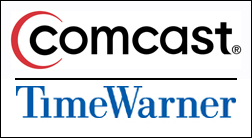 WASHINGTON (CNS) — When Comcast announced in February its $45 billion deal to buy Time Warner Cable, it wasn’t just the twitterverse that was set atwitter.
WASHINGTON (CNS) — When Comcast announced in February its $45 billion deal to buy Time Warner Cable, it wasn’t just the twitterverse that was set atwitter.
For one thing, $45 billion is a lot of money. What’s more, Comcast, the United States’ largest cable company, isn’t using any cash to buy the second-biggest cable operator in the nation. It’s just issuing new stock, which in effect gives current Time Warner Cable stockholders close to a 25 percent stake in the new company.
And it wasn’t that long ago that Comcast bought NBC — which itself had purchased Universal, purveyor of TV and film fare — in a deal that required Federal Communications Commission scrutiny, but ultimately won approval.
[hotblock]
And 10 days after announcing the Time Warner Cable deal, Comcast, also one of America’s biggest Internet service providers, struck an agreement with Netflix to let its content run at faster speeds than what we mere mortals get. More on that later.
Michael Copps, a Catholic who served two-five year terms on the FCC, said in an essay in the Columbia Journalism Review shortly after the Time Warner Cable purchase was announced that if the deal goes through, “that would make this one of the biggest mergers in media history, and I fear it will run roughshod over consumers in the end.”
Already a Comcast executive said he does not anticipate customers’ bills shrinking as a result of the acquisition.
Copps lamented the change wrought across the television landscape. “Gone are hundreds of once-independent broadcast outlets,” he said. “In their stead is a truncated list of nationwide, homogenized and de-journalized empires that respond more to quarterly reports than to the information needs of citizens.”
Now a special consultant to the Media and Democracy Reform Initiative at Common Cause, Copps was the only one of the five FCC commissioners to vote against Comcast’s NBC Universal purchase.
Congress cannot approve, deny or restructure mergers, but the Senate Judiciary Committee will hold a hearing March 26 on the Comcast-Time Warner Cable deal. Holding the hearing “presents a critical moment to discuss net neutrality principles that have allowed the Internet to remain an open marketplace for ideas,” said Sen. Patrick Leahy, D-Vt., the committee chair.
Sen. Al Franken, D-Minn., who used to work for NBC when he was a writer and cast member of “Saturday Night Live,” even before General Electric’s purchase of the network, has come out against the buyout of Time Warner Cable.
Katrina vanden Heuvel, in a Feb. 18 op-ed article in The Washington Post, listed some of what she saw as the drawbacks of the merger.
“The resulting company would have at least 30 million cable customers, just under 30 percent of the TV market, as well as 38 percent of high-speed Internet customers,” she said. “It will have virtual monopoly cable control over news and public service programming in cities like Chicago, Los Angeles, Philadelphia, New York City and Washington, D.C. It will be able to exact price concessions from content providers.”
But if you have the public on your side, it may not matter. And it may not matter how you get the public on your side.
When Comcast made its bid to buy NBC, 54 nonprofit organizations wrote letters of support of Comcast. A joint analysis by The New York Times and the Center for Public Integrity found that Comcast’s charitable foundation had made donations to those groups nearing $8.6 million between a nine-year period, from 2004 to 2012, when the FCC finally approved the purchase.
Comcast is not only a major player in TV thanks to its size as a cable operator and its ownership of one of the major broadcast networks and a fistful of other cable channels, but through its Xfinity service, has grown into a force to be reckoned with for both telephone and Internet services.
In so doing, Comcast will be able to have its hands on the ways we can watch TV: cable, the preferred method by a majority of American households; the Internet, a preferred choice for those who want to “cut the cord” and evade ever-mounting cable bills; and even your smartphone.
And that brings troubling questions about what company will be the next to make Comcast an offer to fork over huge wads of cash to ensure faster Internet streaming speeds — and, if someone gets to go faster, then whose Web connections have to go slower.
Comcast still has to get approval for the Time Warner deal from both the FCC and the Federal Trade Commission. But Comcast may have those sewn up, too. A former FCC commissioner who voted for the NBC purchase quit the FCC with three years left on her five-year term to work for Comcast. And a former Comcast legal counsel moved from Comcast to become one of the four sitting commissioners on the FTC.
***
Pattison is media editor for Catholic News Service.
PREVIOUS: ‘Pompeii’ is a 3-D disaster movie engulfing a soap opera
NEXT: Despite shortcomings, film treatment of ‘Son of God’ is solid



Share this story